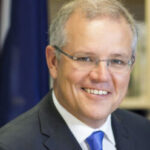Why are there ‘home-grown’ terrorists?

It was reported last week that a potential terrorist attack in Sydney was averted just hours before it was scheduled to occur. The suspects were allegedly apprehended just hours after purchasing a hunting knife and filming a video of their intentions to attack an innocent Australian. Like the Sydney siege, this was not a sophisticated plan; and in Tony Abbott’s words, “all a person needs to become a terrorist is a camera phone, a knife, a flag and a victim”. Unfortunately, potential attacks can often be difficult to detect and prevent.
Why are these attacks happening?
Some Muslim clerics believe that feelings of being targeted, excluded and rejected combined with unemployment and boredom are primary reasons behind young Muslims joining terrorist groups or otherwise planning to engage in “home grown terror”. For young people who feel that they are not able to get jobs or progress in Australian society due to their appearance, name and religious beliefs the situation can be hard to cope with. And it seems that the two suspects in the latest plot are no exception.
The latest plot
Terrorism suspect Omar Al Kutobi was once keen to join the Australian army, but he was rejected. His father recalls how the 24-year-old once loved Australia. His friend and accomplice also had high hopes about Australia when he arrived on a spousal visa in 2013 to join his wife. But he didn’t stay long with her before moving out with friends. His estranged wife remembered that he had come to Australia full of optimism, with aspirations to become a doctor and buy a house. Neither man had ever been in trouble with the law before the day of the alleged attack-plan. Until shortly beforehand, the men dressed in swanky clothing like Nike sneakers and Dolce & Gabbana jeans, enjoying the lifestyle of many men in their mid 20s. But everything changed after Al Kutobi lost his job shortly before the Sydney siege. They watched the siege intently and it had a significant impact on the pair. That impact was reportedly not one of disgust, but of inspiration to seek revenge against those they thought had wronged them.
Foreign fighters
It has been reported that dozens of Australian citizens have flown overseas to fight for terrorist groups like Islamic state. One example is a teen that allegedly flew to the Middle East to “fight the infidel”. He said that his decision to leave was based on losing his job and being unable to secure a new one, which left him “somewhat at a loss”. He now faces court for terrorism charges. It is believed that several Australians who have gone to fight overseas have been inspired by similar feelings. And while fifty-year-old Monis could hardly be described as young, he was certainly an angry man who felt in need of a purpose. Despite having tens of thousands of likes on Facebook, Monis was shunned by mainstream Muslims in Australia for years.
Social Media
Finding an online community can act as a mechanism to cope with social isolation in the real world. Many have lamented how social networks like Facebook can make us feel both more connected and more alone, and how an online world can cause us to ignore those around us. But this has never more dangerous than when terrorist groups successfully use the internet and social media to recruit vulnerable youths. Groups like Islamic State are particularly appealing to young Muslims who feel shunned, lost, purposeless and angry. And those youths are the target market for groups like Islamic State. Former terrorism suspect Zaky Mallah sums it up: “ISIS offers disillusioned youths a vision and a chance to see themselves as heros”. Of course, nothing can ever justify resorting to the atrocious acts of Islamic State. Plenty of Australians lose their jobs, or never succeed in attaining their dream careers, or feel isolated shunned and rejected- none of them join terrorist organisations. But understanding what is drawing people from all over the Western world to become radicalised is important, as it can help us to act against it. The Countering Violent Extremism initiative is a $13.4 million Australian government program aimed at mentoring, guiding and offering unemployment services to youths who are considered at-risk of being radicalised. It appears to be a positive step in addressing the underlying causes of radicalisation. But Tony Abbott has also hinted that there will be yet another national security crackdown on ‘home grown” terrorism suspects. He believes that giving people the benefit-of-the-doubt is too much of a threat to the Australian community. Abbott also pointed to the fact that Monis was allowed out on bail in NSW, despite being charged with numerous sexual offences and for being involved in the murder of his former wife. But like many others, Abbott completely ignores the fact Monis was granted bail under the old Bail Act (1978) and that no application was made by the police or DPP to revoke Monis’ bail under the new Bail Act (2013); although they could (and perhaps should) have made that application after Monis published direct threats of violence to his Facebook page in the lead-up to the Sydney siege. Abbott has renewed calls for even tougher anti-terrorism laws – including laws requiring telecommunications companies to store customer data for up to two years. Whatever the legal changes, it appears that a concerted effort to ensure that Muslim youths are not drawn into terrorist organisations will benefit the community as a whole.






